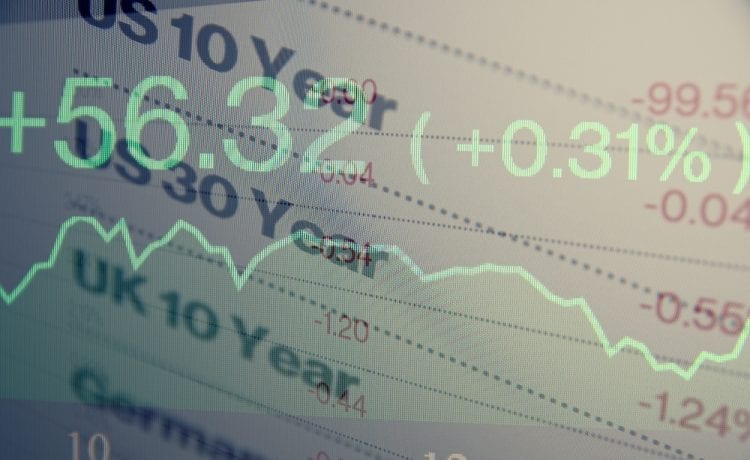Nikkei dropped 1.6%, South Korea shed 1%, MSCI’s broadest index of Asia-Pacific shares outside Japan fell 1.5%, and Chinese blue chips declined 1.9%
Share markets in Asia dropped on Friday after a hike in global bond yields soured sentiment toward richly priced tech stocks, while a rush out of crowded positions may have put an end to the bull run in crude oil.
Having dipped 7% overnight, Brent crude futures managed a marginal bounce of just 11 cents to $63.39 a barrel, while U.S. crude gained 6 cents to $60.06.
The retreat wiped out four weeks of advances in a single session on concerns global demand would fall short of high expectations.
Markets were also unsettled by the Bank of Japan’s decision to slightly widen the target band for 10-year yields and tweak its asset buying.
The bank portrayed the changes as a “nimble” way to make easing more sustainable, though investors seemed to take it as a step back from all-out stimulus.
A decision to confine purchases to only TOPIX-linked ETFs knocked the Nikkei down 1.6%, while South Korea shed 1%. MSCI’s broadest index of Asia-Pacific shares outside Japan followed with a 1.5% drop.
Chinese blue chips declined 1.9%, perhaps unnerved by a fiery exchange between Chinese and U.S. diplomats at the first in-person talks of the Biden era.
Nasdaq futures went flat, after a sharp 3% fall overnight, while S&P 500 futures gained 0.1%. European futures followed the overnight drop with the EUROSTOXX 50 off 0.8% and FTSE futures 0.6%.
Investors are still reflecting on the U.S. Federal Reserve’s pledge to keep rates near zero out to 2024 even as it lifted forecasts for economic growth and inflation.
Fed Chair Jerome Powell seems likely to drive home the dovish message next week with no less than three appearances lined up.
Stronger growth and higher inflation but no rate hikes is a potent cocktail for risk assets and equity markets, said Nomura economist Andrew Ticehurst.
The message for bonds is more mixed: while the anchoring of the short end is a positive, market participants may come to worry that the forecast rise in inflation might not be temporary and that the Fed risks ‘overcooking it’, Ticehurst said.
Yields on U.S. 10-year notes spiked to the highest since early 2020 at 1.754% and were last at 1.71%. If sustained, this would be the seventh week of increases in a row totalling a massive 64 basis points.
The drastic bearish steepening of the yield curve reflects the risk the Fed is serious about keeping short-term rates low until inflation accelerates, so requiring longer-term bonds to offer better returns to compensate.
The latest BofA survey of investors showed that rising inflation and the bond “taper tantrum” had replaced pandemic as their top risk.
While still very bullish on economic growth, company earnings and stocks, respondents feared a sharp setback for equities should 10-year yields cross 2%.
The climb in Treasury yields provided some support to the U.S. dollar, though analysts are concerned that faster U.S. economic growth will also widen the current account deficit to levels that will ultimately drag on the currency.





